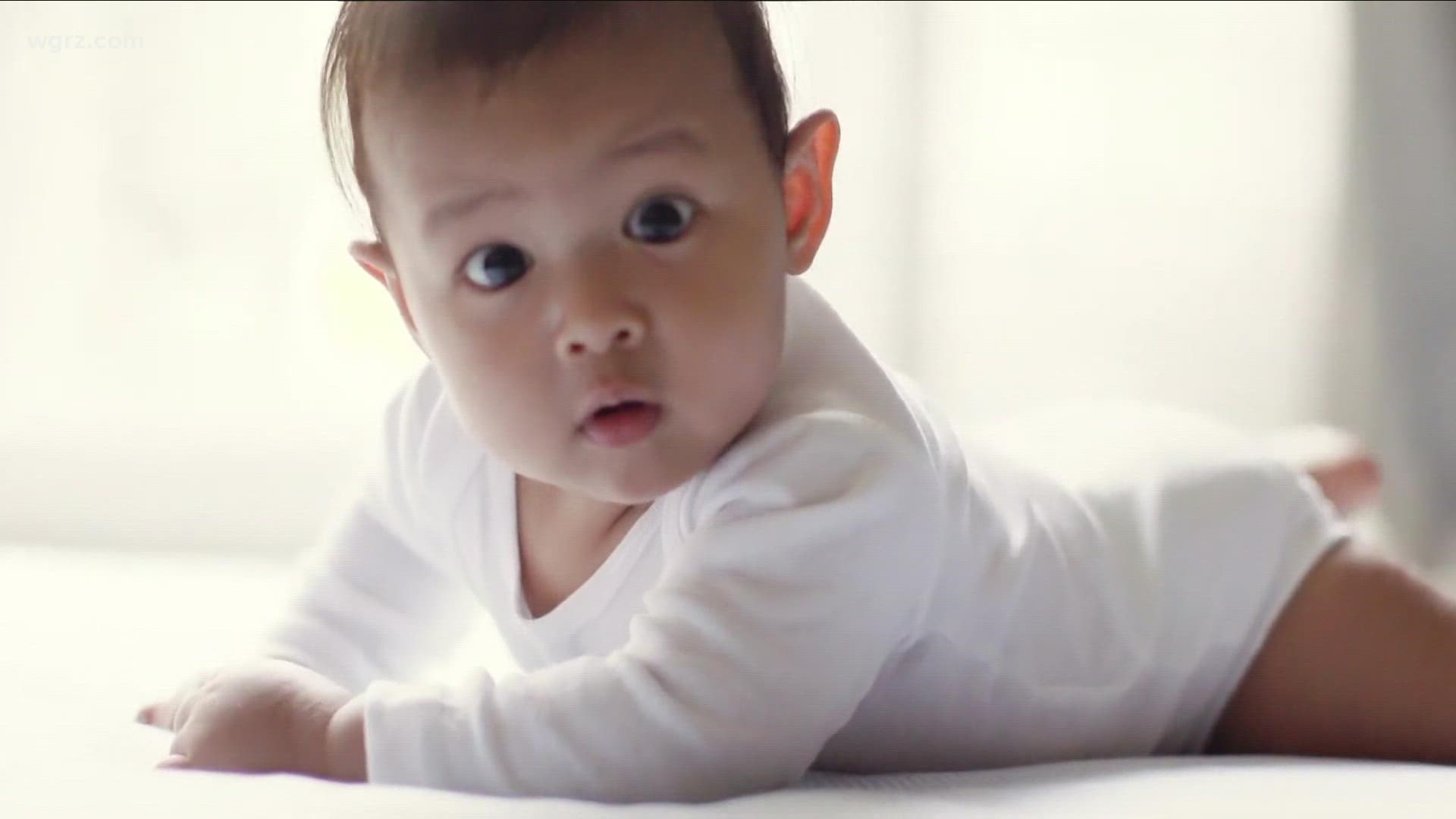BUFFALO, N.Y. — The decision about whether to have children is a personal one, and the COVID pandemic had a lot of people thinking about whether they wanted to start, or add to, their families.
"When I was younger, I wanted kids. I was like I want to be a young mom, I want to be done having kids by 30. Here I am approaching 30, and like do not want kids at all," says Emily Back.
Emily Back was one of the first people to respond to our social media post looking for people to talk to about their decision to have kids or not.
"What inspired you to respond?" 2 On Your Side's Kelly Dudzik said.
"So, I've just been very adamant about not wanting children and I feel like I wanted to talk about it because I feel like there's a stigma against it, so I was like why not," Back said.
Back loves children. She was an au pair in France for a year. Now she lives in Buffalo with her rescue dog, Jackson.
"I have a dog and to me, he's my child," Back said. "He's much less expensive than a child. I can leave him home for a couple of hours unattended. To me, it's still a responsibility, of course, but to me he's my child and that's plenty."
Back is not alone. A Pew Research Center survey from last year revealed more people who don't have kids are likely to never have them compared to just a few years ago. The survey found 44 percent of non-parents ages 18 to 49 say they are "not too" or "not at all" likely to have kids. In 2018, that number was 37 percent.
"These are longtime trends. These are not anything that are new. I think people are just starting to recognize what we've known for a long time. It's all about the economics. If you're married, or if you and your partner are working, it's very expensive to have a child," SUNY Buffalo State economics and finance professor Fred Floss said.
Because unless you have someone who can provide free child care, you usually have to decide between paying thousands of dollars a year for child care, or having one parent stay home and losing a least part of that paycheck.
Michael Curatolo is a financial advisor who helps guide people through this process.
"Your vacations are going to change, your spending habits are going to change, but there's no doubt about it, child care is the number one cost. If you have a support system around you, with regards to grandparents or aunts and uncles, anybody that can help you take the burden off child care, that's huge," Curatolo said.
Curatolo says you also have to balance saving for the future while spending for today, and he sees student loan debt as another reason some people put off having children.
Besides the cost, Floss says there are other factors.
"This latest one is COVID. It may actually go the other way, and we might see more children, but we've seen two or three different events that we couldn't have predicted that have probably given pause to people having children when they were in their early 30s or their late 20s, when most people decide whether or not they're going to have children," Floss said.
Added Dr. Robert Kiltz with CNY Fertility: "The pandemic shut us down for a few months, but then once we opened up, we were busier than ever. So, I think in some way, the stress and struggles of the pandemic maybe focused people on how important families are and building a family."
And if you decide to hold off on having kids, Dr. Kiltz says he's seeing more people in their 40s, 50s, and 60s come in.
"But certainly, those in the late 30s and 40s are our largest group, and I would say that they're moving more and more into recognizing maybe that, you know, there's no right time to have a family, but the earlier you get to work, the better," Dr. Kiltz said.
And it's a super personal decision. A lot of Back's friends have decided, like her, not to have children.
"We see how the world is, we see the rising cost of everything, and we're in debt with student loans, we're trying to buy a house, and that market is through the roof, and like I feel like there are just so many different factors in the world right now, we're all just kind of like, not for me," Back said.
But some of Back's friends do have children, and she's thankful for that.
"Everyone has their choice. For me, I like to be the auntie where I can come and I can play with your kid, I can spoil them, and then I can go home and do what I please," Back said.

